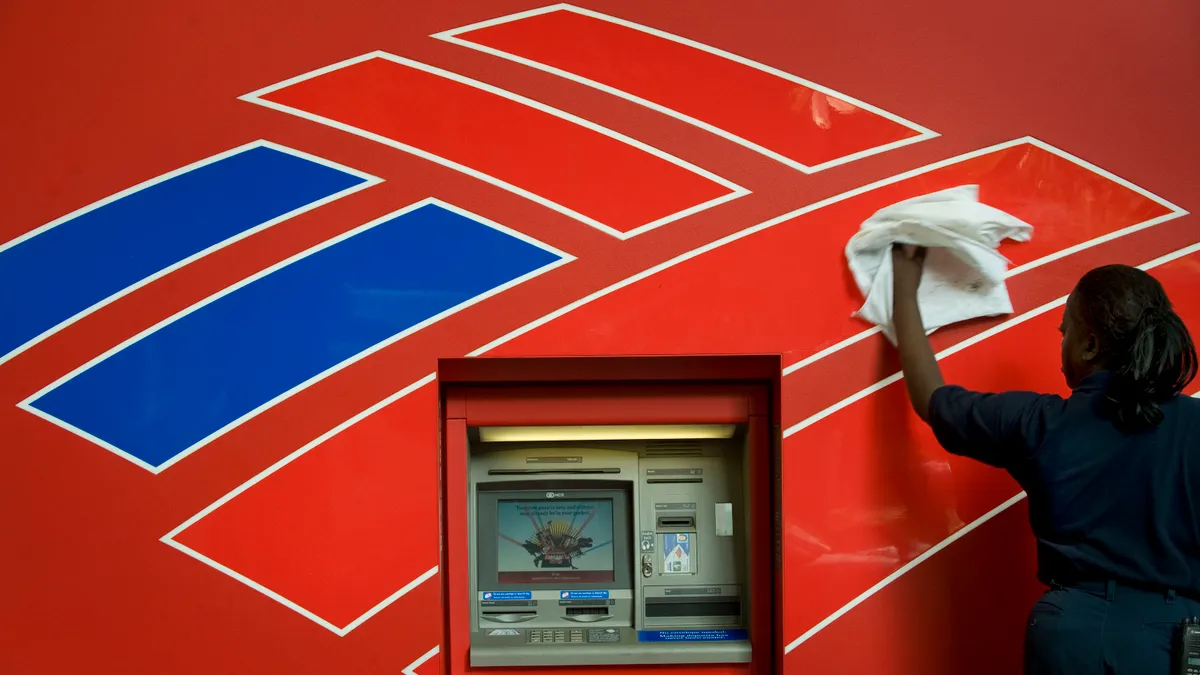Dive Brief:
- The number of ATMs in the U.S. declined to 451,500 last year, a 4% drop from a high of 470,000 in 2019, according to data emailed to Payments Dive from research firm Euromonitor International.
- The continuing closures take place as consumers are using paper currency less often to buy goods. In 2017, just over a quarter (28%) of all consumer transactions were made with cash or checks. By 2022, that number had plummeted to 14%, said Kendrick Sands, Euromonitor’s global head of consumer finance research.
- ATMs will need to find a way to serve customers beyond providing cash if they are to avoid becoming relics, Sands said in an interview.
Dive Insight:
Not that long ago, ATMs were on the rise. Banks that were looking to cut costs would close a physical branch location and simply provide an ATM. So, from 2015 to 2019, the number of ATMs in the U.S. shot up from 434,000 to 470,000, an 8% increase, according to data emailed to Payments Dive from Euromonitor.
But after 2019, the number of ATMs has been steadily sliding, and fell below 2018 levels last year.
ATMs in the U.S. have steadily declined since 2019
In 2020, the COVID-19 pandemic forced people to stay home. Early fears of transmitting the virus through handing out bills and coins seem to have had a lasting effect. Most consumers (93%) don’t expect to stop using cash in the future, according to the latest findings from the Federal Reserve’s Diary of Consumer Payment Choice, published in May.
While there has been a market move by some businesses toward cashless, certain cities and states have pushed back against that trend with legal requirements that merchants accept tender. In addition, legislation has been introduced at the federal level in Congress to protect cash.
“We’ve really seen an aggressive decline in the use cases for cash,” Sands said. He said he expects that slide to continue, projecting cash and checks will be used for just 10% of transactions by 2027.











